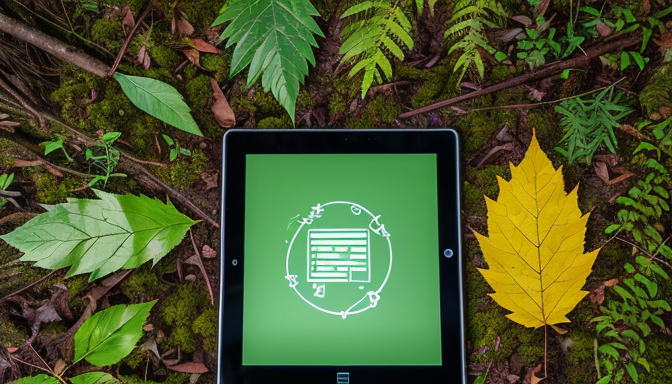In today’s fast-paced world, digital reading has become a staple in our daily lives, yet many of us remain unaware of its fascinating nuances. Did you know that the way we consume information on screens can significantly alter our comprehension and retention? This isn’t just a minor detail; it’s a game changer! Research suggests that readers often skim digital content, which can lead to a superficial understanding of the material. This is quite different from the deep engagement typically experienced with printed books. Imagine flipping through the pages of a novel, feeling the texture of the paper, and losing yourself in the narrative—it’s a sensory experience that screens can’t quite replicate.
But wait, there’s more! Digital reading isn’t just about how we understand texts; it also carries impressive environmental benefits. E-books can drastically reduce our reliance on paper, which means fewer trees cut down and less waste in landfills. In fact, a single e-reader can save approximately 168 books worth of paper over its lifetime. Think about it—by choosing to read digitally, you’re not just enjoying your favorite stories; you’re also contributing to a more sustainable planet.
So, next time you pick up your tablet or e-reader, remember these surprising facts. They might just change the way you think about your reading habits and their impact on the world around you!
Impact on Retention and Comprehension
Have you ever noticed how reading on a screen feels different from flipping through the pages of a book? It’s not just in your head! Studies have shown that digital reading can significantly impact retention and comprehension. When we read on screens, our brains process information differently compared to traditional print formats. This can lead to a decreased ability to recall details and a reduction in overall understanding of the material.
One reason for this discrepancy is the nature of digital interfaces. The constant notifications, hyperlinks, and the temptation to multitask can create a fragmented reading experience. Imagine trying to enjoy a movie while someone keeps pausing it to check their phone—frustrating, right? Similarly, our focus can be easily disrupted when reading digitally.
Furthermore, research indicates that readers often skim through digital texts rather than engaging deeply with the material. This skimming habit can hinder our ability to grasp complex ideas and retain important information. In fact, a study found that only 20% of readers fully engage with digital content compared to print. This begs the question: are we sacrificing comprehension for convenience?
In conclusion, while digital reading has its perks, such as accessibility and convenience, it’s crucial to be mindful of how it affects our cognitive processes. Maybe it’s time to strike a balance between our digital and print reading habits. What do you think—are e-books worth the trade-off?

Environmental Benefits of E-Books
In today’s world, where environmental concerns are at the forefront of our minds, digital reading emerges as a champion for sustainability. Did you know that switching to e-books can significantly reduce your ecological footprint? Think about it: every time you download an e-book, you’re saving trees that would otherwise be cut down for paper production. In fact, a single tree can produce enough paper for approximately 8,333 pages of printed material!
Moreover, the production of e-readers and the digital infrastructure needed for e-books has a much lower impact on the environment compared to traditional publishing. Consider the entire lifecycle of a book, from tree harvesting to manufacturing, transportation, and eventual disposal. Each step contributes to carbon emissions and waste. In contrast, e-books require no physical materials and can be delivered instantly to your device, cutting down on transportation emissions.
Here’s a quick comparison of the environmental impact of traditional books versus e-books:
| Factor | Traditional Books | E-Books |
|---|---|---|
| Tree Consumption | High | None |
| Carbon Footprint | Significant | Minimal |
| Waste Generation | High | None |
By embracing digital reading, we not only enjoy the convenience of having our entire library at our fingertips but also make a conscious choice to protect our planet. So, the next time you curl up with your e-reader, remember: you’re not just indulging in a good book, you’re also contributing to a greener future!
Frequently Asked Questions
- Does digital reading affect my comprehension?
Absolutely! Studies suggest that reading on screens can lead to different retention rates compared to traditional books. It’s all about how our brains process information in various formats. So, if you find yourself zoning out while scrolling, you’re not alone!
- Are e-books better for the environment?
You bet! E-books help reduce paper waste and lower carbon footprints. Think about it: every e-book you read means one less tree cut down. It’s a small change that can lead to big environmental benefits!
- Can digital reading lead to eye strain?
Yes, it can! Spending long hours staring at screens may cause discomfort. To combat this, try the 20-20-20 rule: every 20 minutes, look at something 20 feet away for 20 seconds. Your eyes will thank you!
- Is it easier to get distracted while reading digitally?